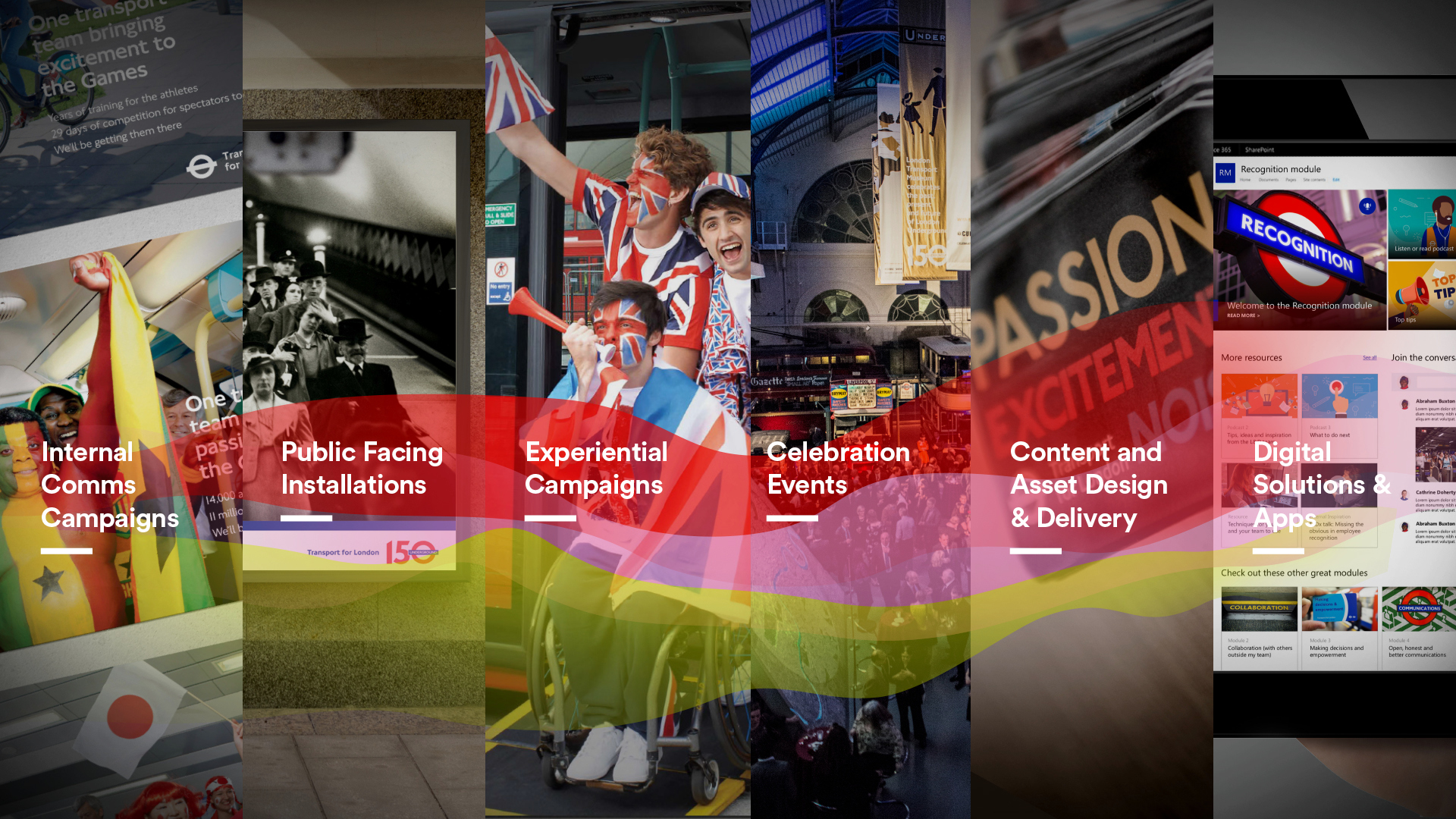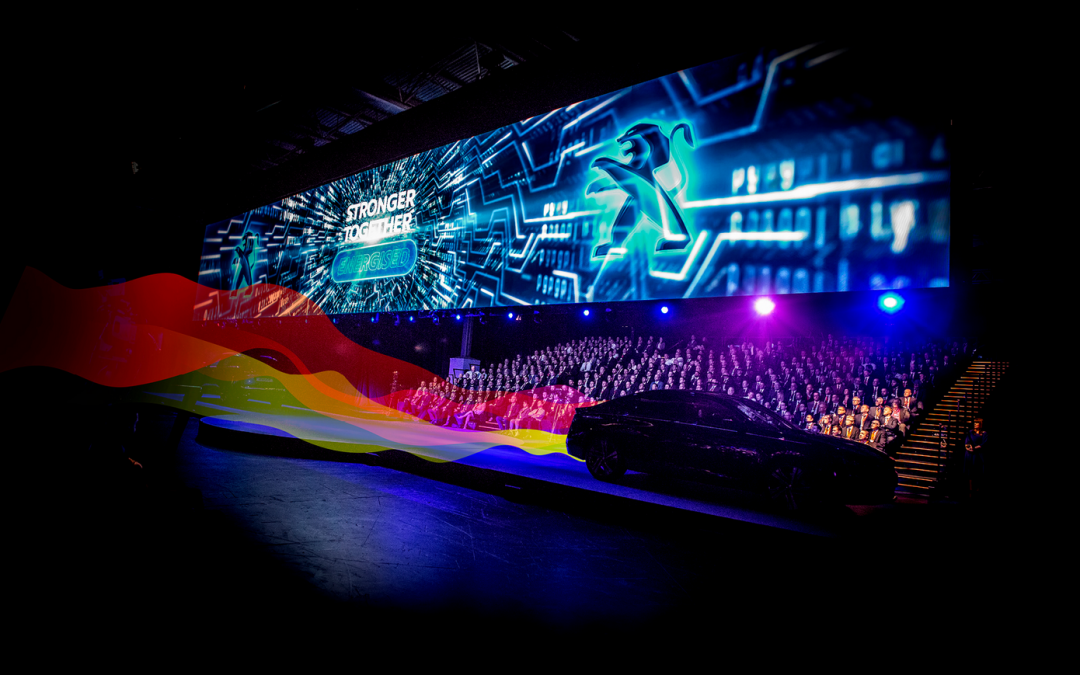Photo: Stellantis | Automotive | Experiential
Michael Mills is the Content Creator & Social Media Exec at Strata Create, a new role created to reflect an industry-wide emphasis on content and social media presence, whatever channels you might be using. We interviewed Michael about his role so far, how to make short-form content that stands out and how agencies can engage with TikTok.
 Can you tell us about your journey, how you got started and how you got to where you are now?
Can you tell us about your journey, how you got started and how you got to where you are now?
It started off at university, where I become passionate content creation and filmmaking. I studied Sports Business and Sports Broadcasting at university, and – although this came quite late in the university journey – I became really involved in the broadcasting side. For someone that had never been involved in camera work, I was quite decent at it and I gained quite a bit of work, a few internships, from that. I ended up at Queen’s Park Rangers football club which was crazy, a great experience. I got work through them: content creation, camera work, videography. And of course, for my degree I had to do lots filmmaking, making documentaries, short pieces, TV packages and things like that.
After university I ended up at Limelight Social (an agency specialising in sports events and sports clientele), who were a company who found me at university. My work impressed them and they were aware of my sporting background. They put me straight in the deep end, in terms of going out and shooting, making content specific to that football player or that brand. And at first it was quite difficult. It was my first role after uni, without the same guidance. But as I went along it became easier. From there I started doing freelance work, off my own back. Whether that was graphics, or different types of content. Which ultimately lead me to Strata.
This is the first time Strata has had a dedicated content creator. What’s going to be your focus and what do you hope to bring to the agency with your work here?
My focus is to build a stronger online presence and then showcase the work that we are doing. There is a lot of good work that is going on, behind the scenes or at events, which hasn’t been showcased to date. My main goal is to get people to our channels, to find out who we are, and then showcase the incredible work the team is delivering day in, day out. I want us to be up there with the best in terms of content we are delivering, if we can do that within the first six months, which is a big target, that would be great. But, ultimately, the end goal is to get people thinking “wow, that’s what they’re doing” from a creative standpoint, content, events and the day to day.
You’re going to be mostly creating short form content. How does short form differ from long in terms of the way it needs to engage people? And what do short form content creators need to keep in mind?
Long form is all about building a story. However, for short-form content it’s about delivering a message in a short period of time. People value their time, they want quick answers, quick results, quick messaging. Short form content should engage the viewer straightaway, inform them and get to the point as quickly as possible.
Keep your content brief and impactful. As much as you want to showcase the nice scenery and tell a story, you only have the viewers attention for a matter of seconds, so showcase what matters. If you manage to engage your audience, they are then more likely to consume your longer form content too.
Why do you think short form content has been so vital for agencies to make, and also to make well? In the pandemic there was lots of user generated work and now there is more of an onus on professionally made content.
It’s a good advertising tool. Ten, fifteen years ago it was adverts on TV, but no one is spending their time watching adverts.
The majority of people now spend time on their phones, on laptops, consuming more content through websites such as social platforms.
I think UGC was great, it’s relatable. I think it was a new way of advertising and selling, but from a business standpoint creating more professional short-form content is more strategic than UGC now. It’s sleek, almost like a short-form advert, it reinforces your brand and is attractive to different audiences.
Strata is going to be setting up a TikTok, which is a fear area for many people. It’s harder to game the algorithm, there seems to be less of a strategy. Do you have any thoughts on how agencies can engage with TikTok in a way that is meaningful?
TikTok has a younger demographic than other platforms but it is no longer just a platform for teenagers doing dance routines – that view is simply not relevant anymore. It is much more powerful as a platform.
For Strata, we want to engage in TikTok to help aid our employer brand efforts. We are always looking to attract the very best in the industry. For us, TikTok isn’t the place to try and secure new business, but it’s a great way of showcasing our diversity and culture, the fun we have working in such a fast paced industry, and offering a little insight into behind the scenes in an experiential events agency. That’s the type of content that works for us on TikTok.
It is also really important to implement a TikTok strategy, understanding what you are trying to achieve, and then finding creative ways to do that. We are looking forward to launching this new platform and making it work for us.
Do you have any tips for agencies and brands in terms of making their content stand out? Is it visuals, what they’re talking about, language, sound?
Moving content is imperative for engaging more viewers, as well as audio and soundbites. We are looking to create more content around client feedback as well as projects delivered. It’s great to showcase what you’ve done but potential new business wants to know how successful that was. We are hugely proud of the amazing feedback we get from clients, so we want to share that we are delivering Moments that Matter.
It’s not ALL about video, photos certainly have their place in the mix… they have a real opportunity to work as your brand’s hero shots. They may not perform as well in terms of engagement, but there is still very much a place for them. Ultimately, short video content is what people like to consume, it is what people are engaging with. For now, its all about short form video, who knows what it will be in 5, 10 years time!
In this new role, what does an average week look like for you?
It is really varied! One week I could be in Morocco, the next in Amsterdam!
But its not all glamourous travel, it’s also meetings with various departments including production and client accounts trying to establish what the best type of content will be for individual events. Preparing for events, getting a brief sorted, attending the event, making sure I upload all my rushes to one hard drive and then it’s straight back out on another event!
There is a lot of time spent editing. I’m someone that believes in taking your time through the editing process. You have to make sure it’s the best work you can produce, delivering on the brief, before you’re on to the next. It’s not just recording and editing. There’s a lot that goes on behind the scenes.
It’s a new role for Strata so there is naturally some time needed to ‘bed in’ but I have already managed to capture some awesome content from the events I have attended, and we are looking forward to an exceptionally busy summer!

Photo: TfL | Engagement



